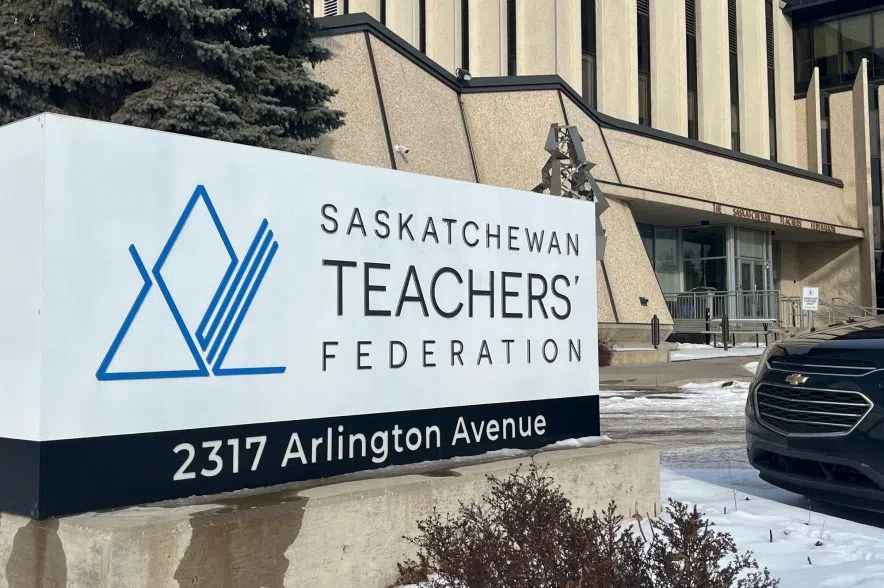As of Tuesday afternoon, it remained unclear as to whether or not Saskatchewan teachers and the province were close to reaching a deal on a new collective bargaining agreement.
A release from the provincial government on Tuesday afternoon said: “We remain hopeful that discussions will continue at the bargaining table.”
The Saskatchewan Teachers’ Federation didn’t comment on the negotiations or confirm how long meetings would go on Tuesday, or if they would be extended.
Representatives of the provincial government and the STF were to meet at the union’s headquarters in Saskatoon for two days starting Monday. That was after stalled negotiations led to multiple single-day strikes throughout the province and a planned withdrawal of lunchtime supervision.
The strikes and withdrawal of lunch-hour supervision were put on hold as both parties went back to negotiations, but STF president Samantha Becotte said last week that further sanctions could be announced if no deal is reached, noting a 48-hour notice would be given.
Because of the required notice, at the time of writing, the only possible day for a strike would be on Friday, and students in the province will be off school for their winter break starting Monday.
The STF has been vocal about the issue of classroom complexity – the number of students who require additional help and support – saying teachers are often struggling to keep on top of the issues without enough additional help in their classrooms.
So far, the province has remained adamant that stipulations on classroom complexity won’t be included in a new contract, but is working to develop solutions to the issue.
Last month, the Ministry of Education announced a $3.6-million pilot program aiming to address disruptive behaviour by students by creating eight “specialized support classrooms” in order to help staff members better manage and de-escalate disruptive behaviour.
On Tuesday, the eight schools at which that pilot project will be launched were identified by the government.
Education Minister Jeremy Cockrill said the ministry is looking forward to working with schools to address the disruptive issues during the pilot project.
“In supporting students, teachers and staff, this pilot aims to reduce interruptions in the classroom and provide additional support to the students who need it,” Cockrill said in a statement.
But while the pilot may help address the issues, Becotte said special classrooms won’t solve the problems. The union head said she viewed launching the pilot as an acknowledgment by the Ministry of Education that there are serious issues in Saskatchewan classrooms.
“It is a clear admission of government that they agree that class complexity is increasing and needs to be addressed and that additional funds are needed,” Becotte said in a previous interview. “We also believe that this is government’s way of attempting to yet again sidestep our collective bargaining process.”











